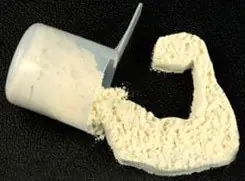A beautifully built, powerful and dimensional body is simply impossible without the presence of muscle mass. The reason for the desire to obtain high-quality “meat” can be a number of factors. For practicing amateur and professional athletes, this is preparation for tournaments and competitions, moving from one weight category to another, increasing general or specific strength characteristics.
For beginners, going to their first gym is an opportunity to get rid of natural thinness and, combined with hard training with iron, gain the desired relief. A proper diet rich in all the microelements the body needs, persistent systematic and thoughtful training, and at least the beach is yours!
Basic principles of nutrition for gaining muscle mass:
- Precisely adjusted menu. Depending on your planned tasks and goals, you need to consume those foods that will quickly and efficiently contribute to the optimal gain of the necessary muscle mass.
- Regularity of eating. To gain muscle consistently, you really need to eat a lot and train hard. Meals should be frequent and range from 5 times a day at three-hour intervals to 8 times for athletes preparing for serious competitions. During these meals, the body must receive all the nutrients necessary for growth and functioning: proteins, fats and carbohydrates. You need to forget about the feeling of hunger. If an athlete is hungry, he is doing something wrong. In order for a muscle to grow, it must receive building materials 24 hours a day throughout the entire mass-gain cycle.
- Calorie control. It is necessary to clearly know the number of calories consumed. Otherwise, achieving the desired result will be much slower. In case of weight gain, a person should always consume more calories than he can actually burn. The body receives the necessary or even excess amount of calories - the muscles grow.
- Harmony of proteins, fats and carbohydrates. BZHU are the bricks from which muscle mass is built. When gaining weight, the consumption of protein foods should be 30-35% of the total volume of food, fats, especially polysaturated fatty acids, at least 10-20%, and carbohydrates, which are fuel and provide energy for strength training, 50-60%.
- Proper fluid intake. Without water, there will be no progress in muscle growth, since muscle tissue is mostly composed of liquid. Depending on the height and weight of the athlete, the amount of water consumed per day varies from 2 to 4 liters. It is recommended to drink water between meals.



